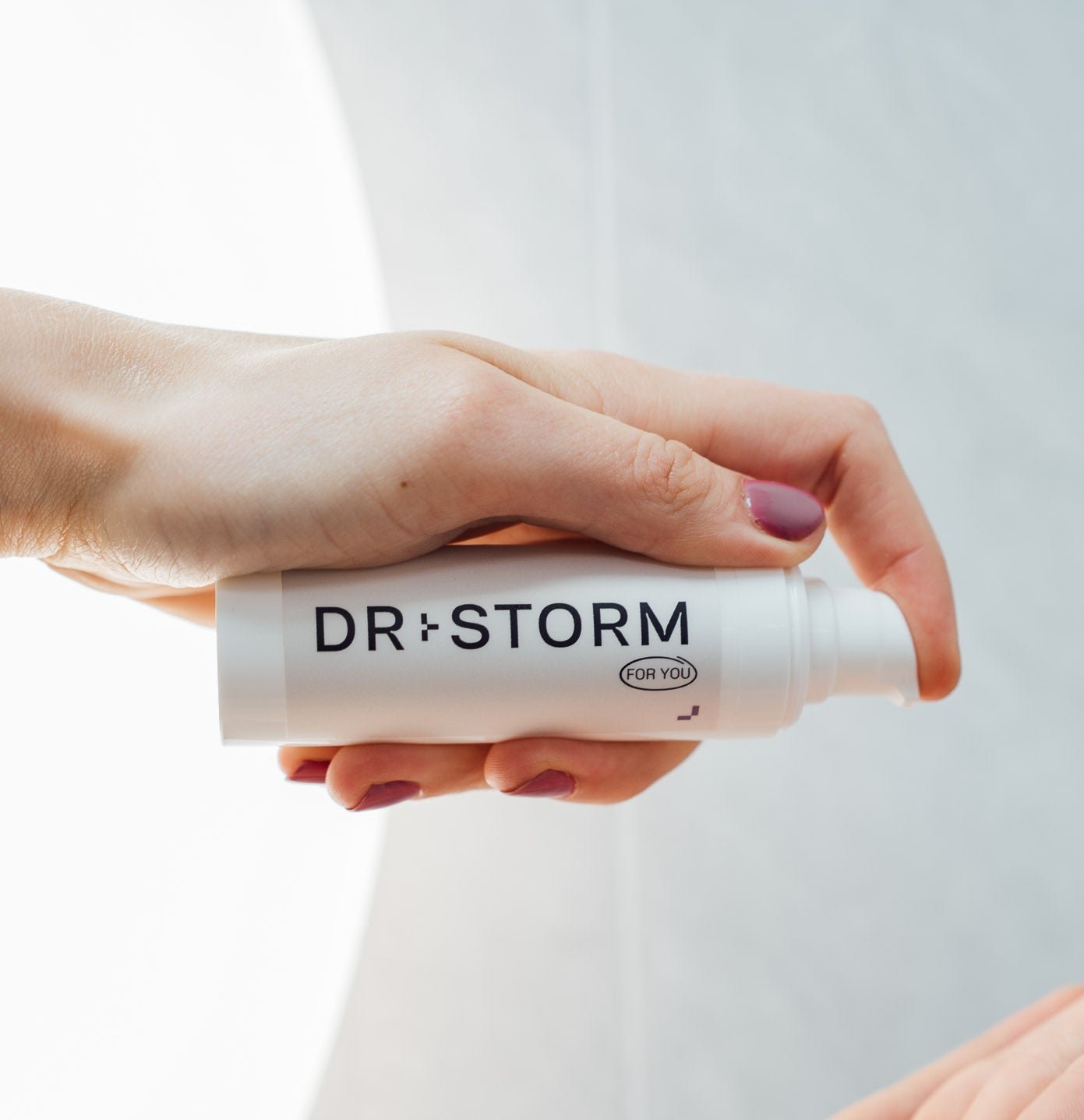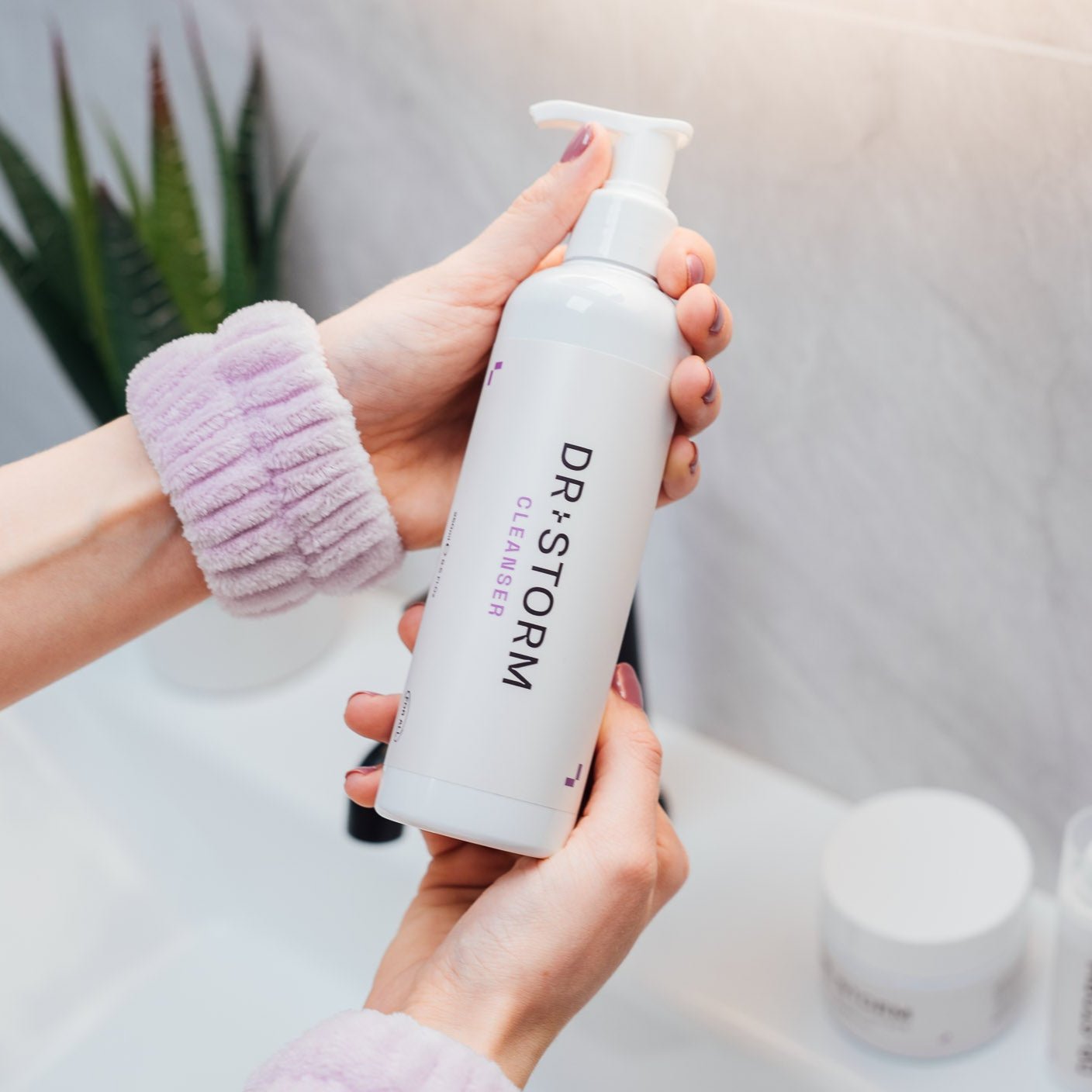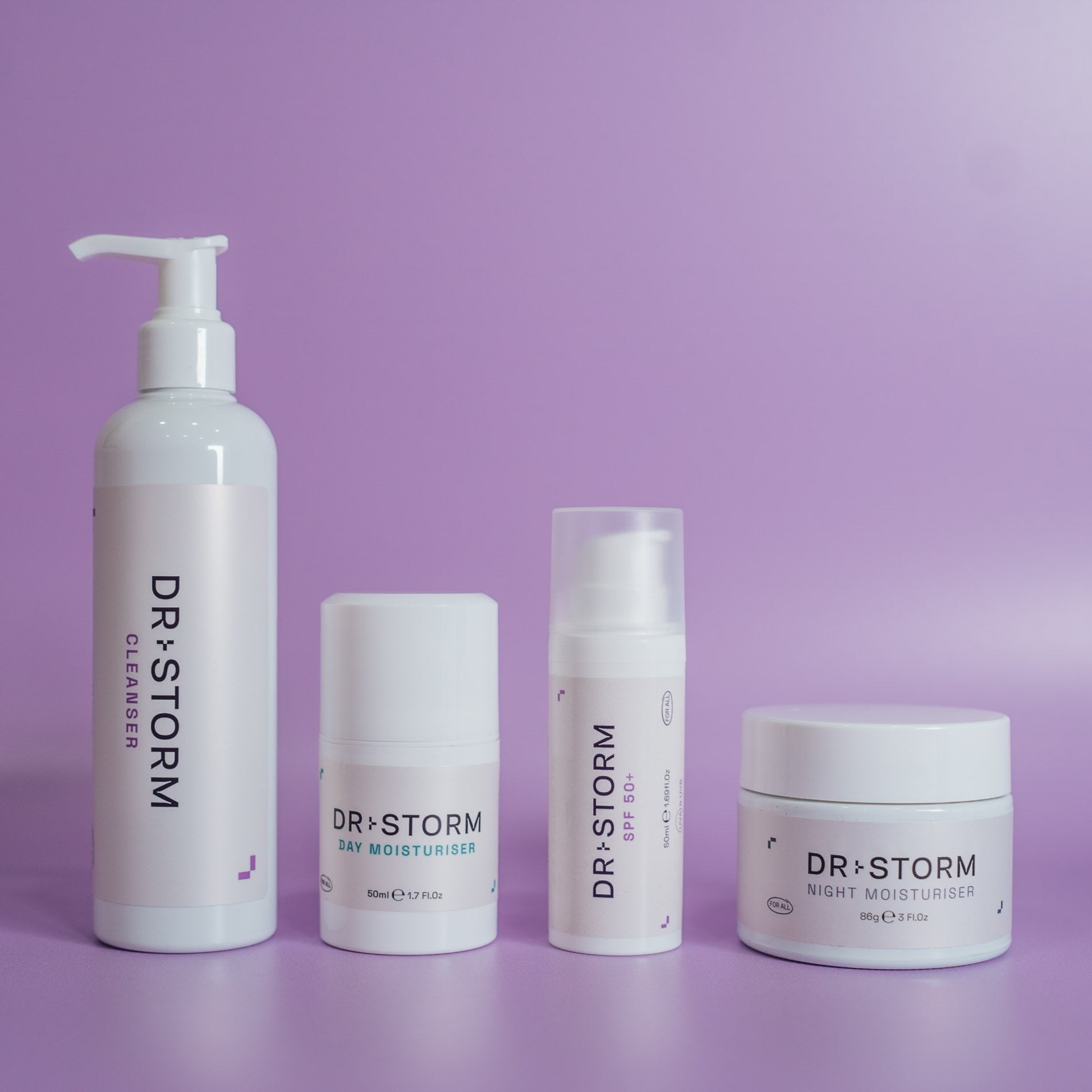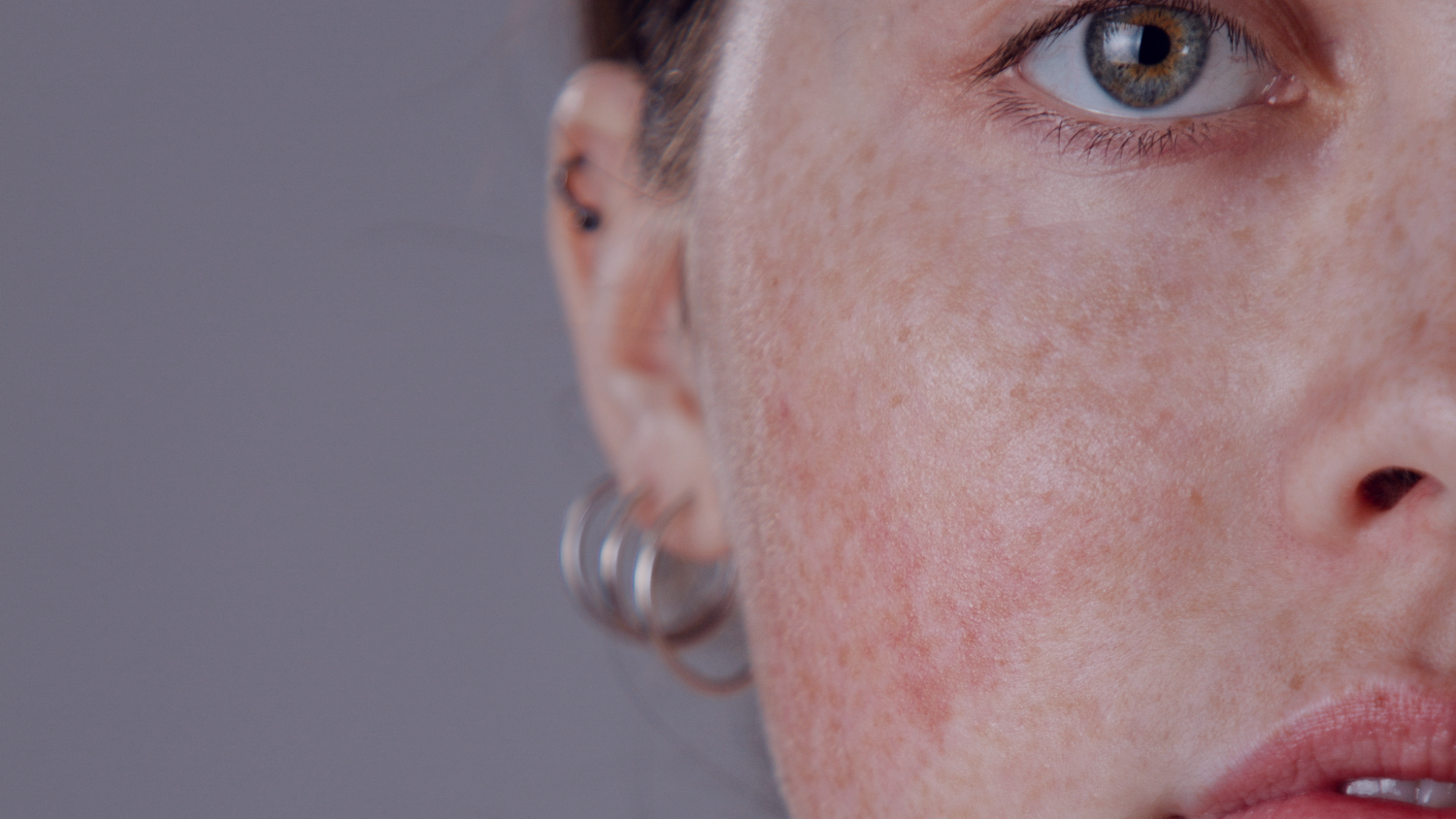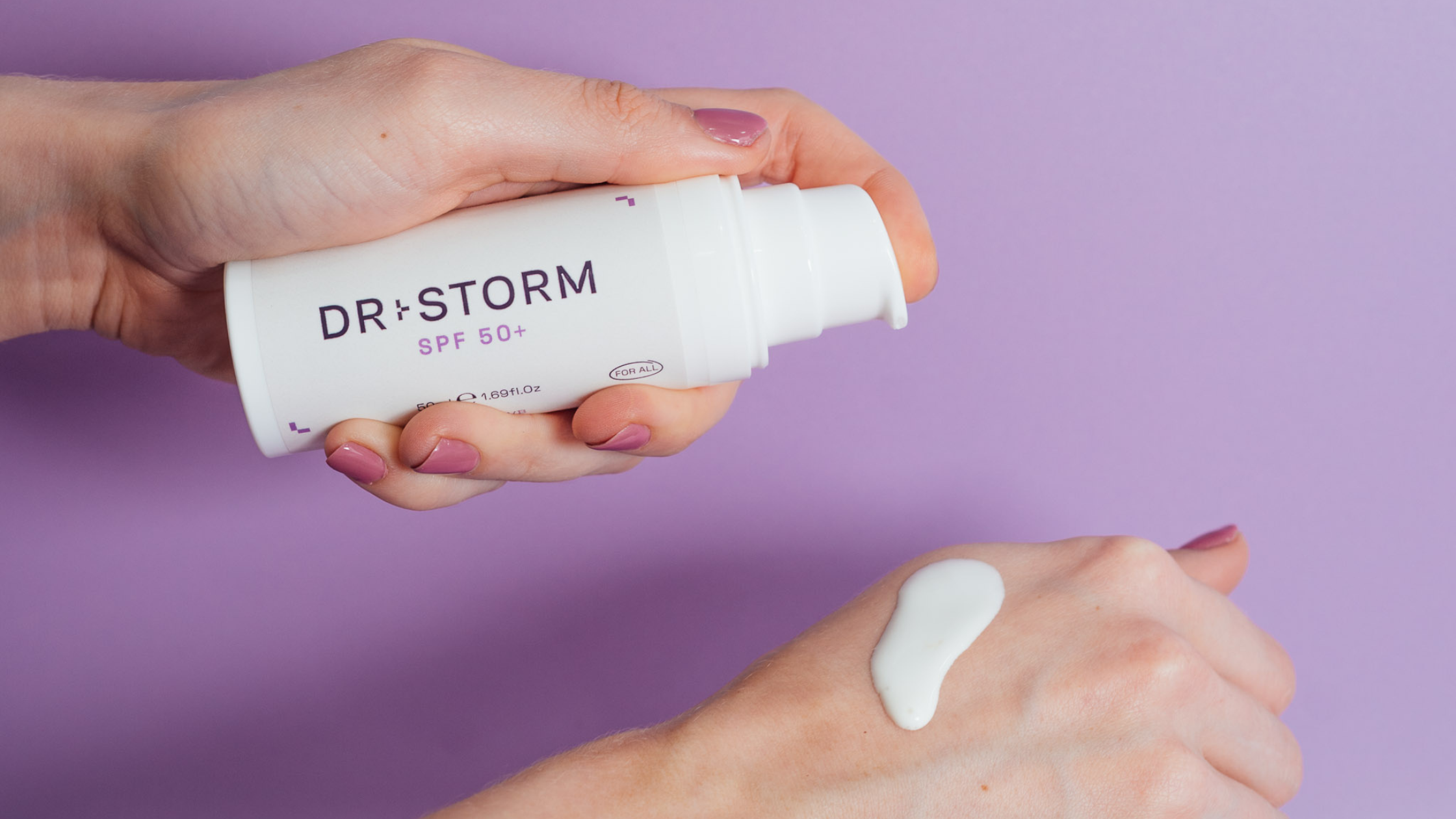Rosacea can be challenging to manage, especially during the colder months. Women who experience rosacea often struggle with symptoms such as redness, flare-ups, and heightened sensitivity, all of which can be aggravated by winter weather.
In addition to the physical symptoms, rosacea can also have an emotional impact, affecting self-esteem and confidence. However, with the right knowledge and care, it is possible to minimise flare-ups and maintain calm, hydrated, and balanced skin throughout the winter.
This guide provides practical, science-backed tips to help you manage rosacea during the winter months so you can feel more in control of your skin.
Why Winter Can Worsen Rosacea
Winter can be especially harsh for women with rosacea, and understanding why it happens is the first step toward managing it. The season introduces several triggers that are hard to avoid, including:
- Cold, Dry Air: Harsh outdoor conditions strip the skin of its natural moisture, leaving it dry and vulnerable to irritation.
- Indoor Heating: Artificial heat drains the air of humidity, leading to further dehydration and redness.
- Harsh Winds: Wind can damage the skin’s barrier, increasing sensitivity.
- Temperature Fluctuations: Moving between cold outdoor air and warm indoor spaces causes blood vessels to dilate, worsening redness and flushing.
-
Diet and Lifestyle: Hot drinks, alcohol, spicy foods, and stress—all more common during the winter holidays—can trigger flare-ups.
Understanding these factors allows you to take preventive steps and adjust your skincare routine to protect your skin better.
Building a Winter Skincare Routine for Rosacea
A well-thought-out skincare routine is the foundation for managing rosacea year-round, but winter calls for a few adjustments. Focus on gentle, hydrating products and avoid anything that might further irritate your sensitive skin.
Gentle Cleansing
- Opt for a non-foaming, fragrance-free cleanser once a day only to avoid stripping your skin of its natural oils.
- Look for gel-based cleansers designed for sensitive skin, like Dr Storm’s Basically Brilliant Cleanser, which removes impurities while maintaining hydration.
-
Avoid scrubbing or using hot water; lukewarm water is best. Minimise water on the skin and turn your back away from the shower.
Hydration is Key
- Use a rich, non-comedogenic moisturiser that is ointment based if your skin is dry. Make sure your moisturiser is fragrance-free
-
Dr Storm’s Night Moisturiser is perfect for locking in moisture overnight and soothing irritation caused by winter conditions.
Sun Protection, Even in Winter
- Daily SPF is non-negotiable, even on cloudy or cold days. UV rays can still aggravate rosacea.
- Use a lightweight sunscreen that is free from fragrances and irritants.
- Dr Storm’s Basically Brilliant SPF 50 is ideal for sensitive skin, offering broad-spectrum protection without clogging pores.
Personalised Treatments
- Incorporate products tailored to your unique skin needs, like Dr Storm’s Personalised Skincare Treatments, which are formulated with high-strength active ingredients to target rosacea effectively.
-
Use treatments consistently but sparingly to avoid overloading your skin during the winter.
Lifestyle Tips for Managing Rosacea in Winter
Your skincare routine is only one part of the puzzle. Adjusting your lifestyle can also make a big difference in preventing flare-ups.
Protective Measures
- Shield your face from cold winds with a scarf. Choose breathable fabrics to avoid overheating.
-
Limit time in hot showers or baths, which can strip your skin of moisture and aggravate redness. Opt for lukewarm water instead.
Dietary Considerations
- Be mindful of foods and beverages that trigger your rosacea. Common culprits include:
- Spicy foods
- Alcohol
- Hot beverages like coffee or tea
-
Incorporate anti-inflammatory foods into your diet, such as fatty fish, leafy greens, and berries.
Stress Management
- Stress can exacerbate rosacea symptoms. Incorporate calming practices into your daily routine, such as:
- Yoga or gentle stretching
- Meditation or mindfulness exercises
- Journaling to offload mental clutter
-
Prioritise self-care to keep stress levels manageable during the busy winter months.
Common Winter Rosacea Mistakes to Avoid
Even with the best intentions, it’s easy to fall into habits that could worsen rosacea. Here’s what to watch out for:
- Harsh scrubs or chemical exfoliants like glycolic acid can weaken your skin barrier, causing irritation. Use exfoliation sparingly, if at all
- Just because it’s winter doesn’t mean you can skip sunscreen. UV exposure can still harm your skin and trigger rosacea.
-
Even oily or combination skin needs hydration, especially in winter. Skipping moisturiser can lead to a compromised skin barrier and increased sensitivity.
When to Seek Professional Help
Sometimes, despite your best efforts, rosacea can be difficult to manage. Here are signs you might need professional support:
- Your flare-ups are frequent or severe.
- Over-the-counter products don’t seem to help.
- You’re noticing new or worsening symptoms, such as persistent redness or visible blood vessels.
Dr Storm’s Personalised Skincare Treatments are designed to address rosacea and other skin concerns with high-strength active ingredients tailored to your specific needs. Consulting a professional can ensure you’re using the right products and techniques for your skin.
Conclusion: Nurturing Your Skin and Confidence This Winter
Managing rosacea during the winter months can feel overwhelming, but it’s possible with the right approach. By building a gentle, hydrating skincare routine, avoiding common triggers, and prioritising self-care, you can keep your skin calm and healthy all season long.
Remember, rosacea doesn’t define you—confidence comes from caring for yourself in ways that feel right for you. If you’re looking for personalised support, explore Dr Storm’s skincare range to find treatments designed with you in mind. Your journey to calm, radiant skin starts here.
_________________________________________
Resources:
https://www.rosacea.org
https://www.bad.org.uk/pils/rosacea/
https://health.clevelandclinic.org/search?q=rosacea
https://www.aad.org/public/diseases/rosacea/triggers/prevent
https://dermatology.melbourne/winter-tips-for-rosacea-patients/

